
The future of energy may lie with hydrogen, but the journey to get there won't be easy
At first glance, there is nothing altogether unusual about the train.
Sitting on the platform at Spandau station in the suburbs of Berlin, it looks much the same as every other one.
But do not be fooled, for this train, manufactured by French group Alstom, is very special indeed. It runs not on electricity or diesel but on what many think is the fuel of the future: hydrogen.
Indeed, the train is something of a record-breaker, having travelled more than a thousand kilometres on a single tank of hydrogen only a few weeks earlier. To travel on, though, it feels just like any other regional locomotive.
There is no engine noise, no whiff of diesel fumes as it pulls away. Indeed, it feels a lot like one of the countless other electric trains you find around Europe.
Which begs the question: what is the point of a hydrogen train?
 A hydrogen train looks and feels like its electric and diesel predecessors
A hydrogen train looks and feels like its electric and diesel predecessors
The short answer is that not every part of the rail network is electrified. In Germany, about 40% of the tracks aren't connected to power; in the UK the proportion is even higher: around 60%.
At the moment trains running on those lines tend to use diesel power, which of course means carbon emissions. And since connecting those tracks to electricity would be fiendishly expensive, hydrogen is seen as one of the most compelling options to eliminate emissions from rail transport.
How you make hydrogen matters
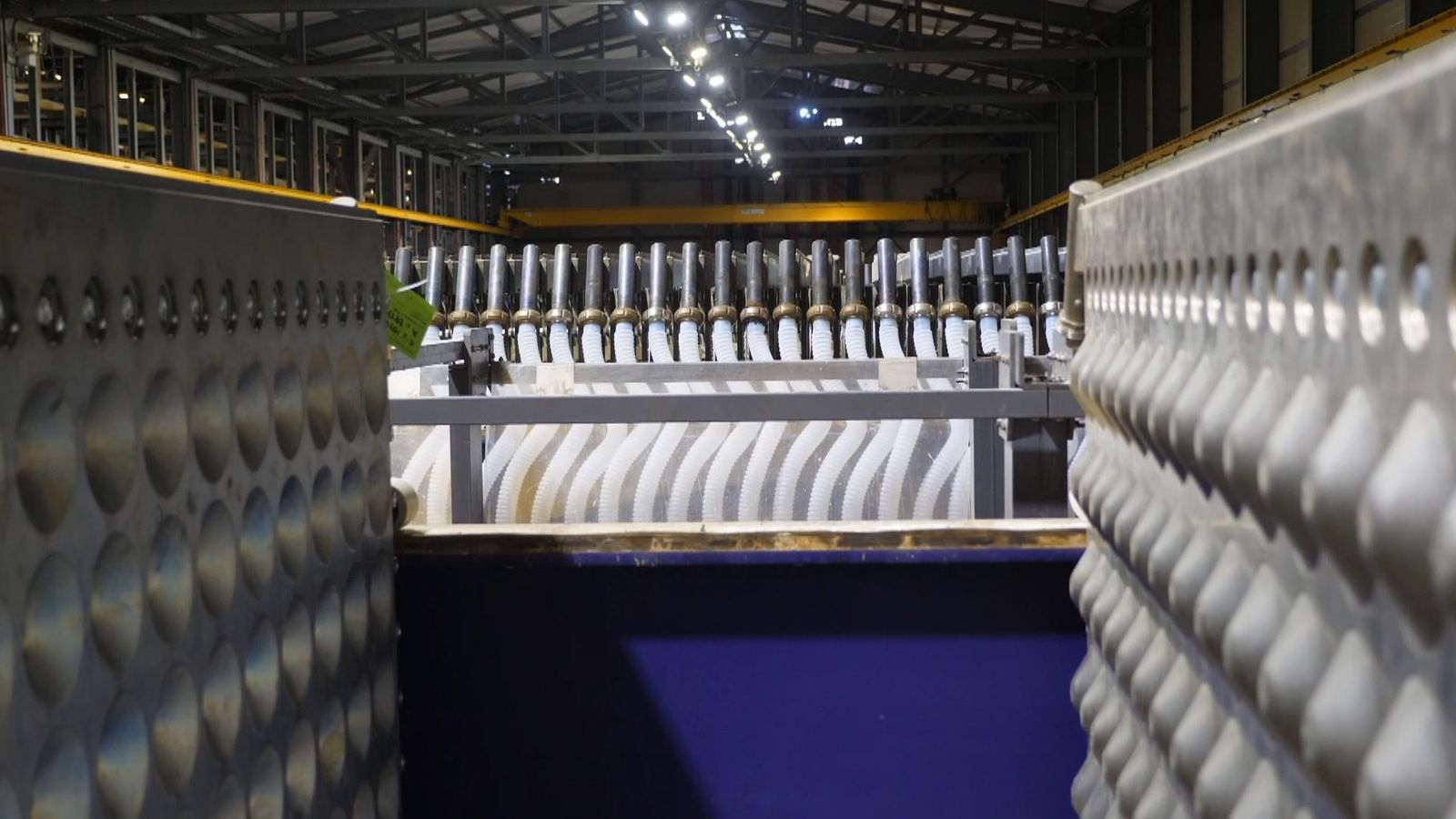 Electrolysis in action
Electrolysis in action
And that brings us to the first thing you need to know about hydrogen. It is a wonder element: incredibly useful for its chemical properties but also capable of being used as a fuel. It can be burnt in much the same way as natural gas is burnt; and it can be run through a fuel cell, where it behaves a little like a battery.
But, even more importantly, hydrogen can be created without any carbon emissions. I say 'can' because actually it turns out there are all sorts of ways of making hydrogen, some of which are clean and others are considerably more dirty.
Hydrogen aficionados have come up with a palette of colours to describe the various different methods used to make it which is, on the one hand, slightly ridiculous given hydrogen itself is a colourless gas; but it does at least underline that there are many different routes to making it.
The main way hydrogen is made today (there is nothing especially new about the gas, even if everyone is going on about it a lot more these days) is from natural gas - the methane we get out of the ground and pipe into our boilers. Remove the carbon atom from methane through a process called "steam reforming" and you are left with hydrogen gas.
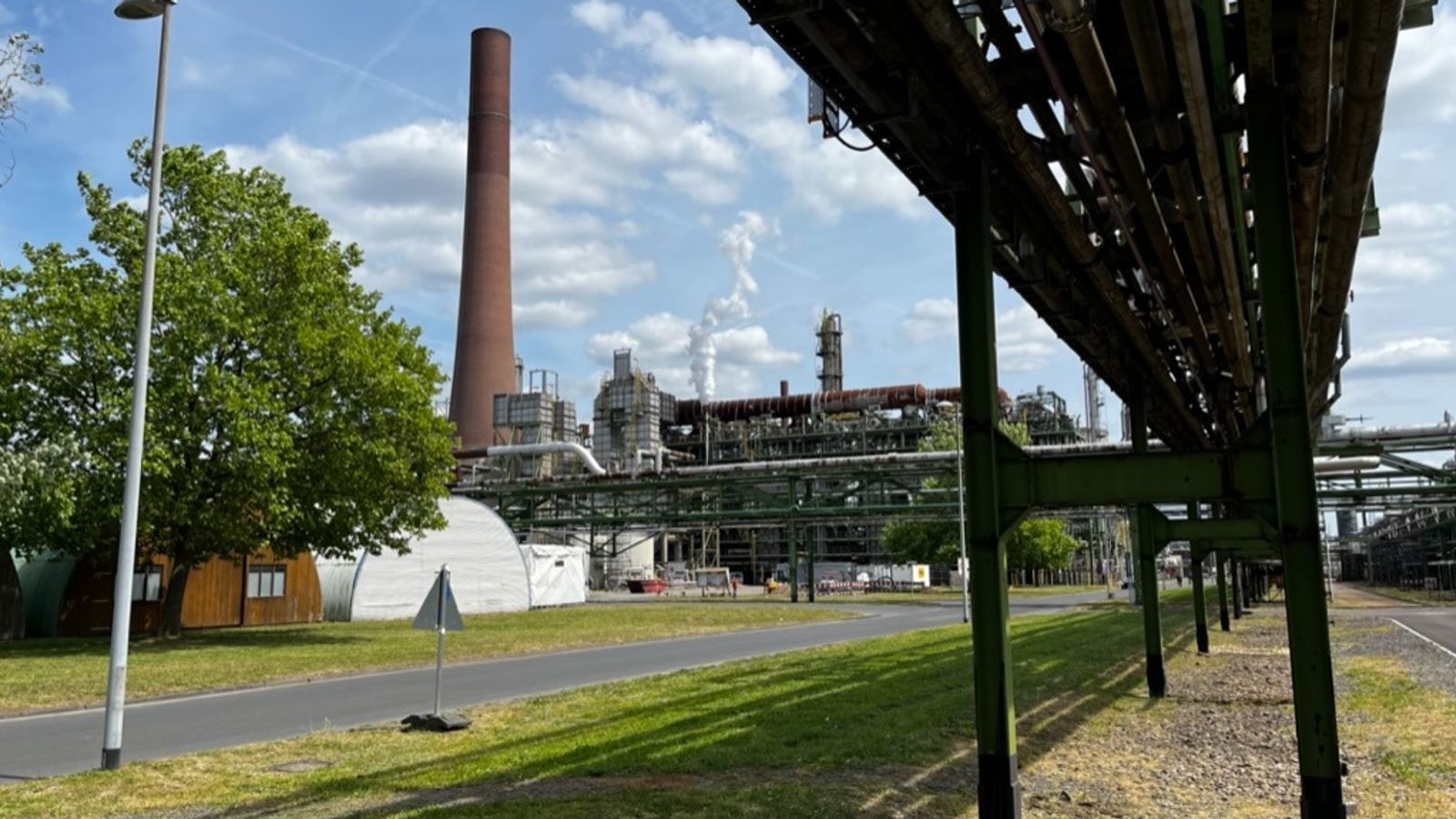 Shell's plant near Cologne
Shell's plant near Cologne
This - grey hydrogen as it's known - is something that already gets produced on a grand scale in refineries and plants around the world. The hydrogen is used as a feedstock for all sorts of chemical processes, it helps us make plastics as well as other petrochemicals, but arguably its most important function is in the manufacture of fertilisers.
Without all those molecules of grey hydrogen produced and turned into ammonia in recent decades, millions of us would have starved. So hydrogen is already quite a big deal.
The problem, as you'll have noticed, is that grey hydrogen involves quite a lot of carbon emissions. Now, one solution to this is to try to capture those carbon emissions out of the chimney and store the CO2 away underground. Do this and you have a low carbon form of hydrogen (you can't capture every single carbon atom) commonly known as blue hydrogen.
The colour palette only grows from thereon. There is black hydrogen (made from coal), pink hydrogen (made from nuclear power), turquoise hydrogen (produced by pyrolysis of methane) and on and on. But the holy grail of hydrogen these days is "green hydrogen".
Green hydrogen is made by passing water through an electrolysis cell, powered with electricity generated by a renewable source, be it wind, solar or hydropower.
The electricity rips apart the hydrogen atoms from the oxygen atoms in the water, creating hydrogen gas at one electrode and oxygen at the other. Voila, you have a truly green source of hydrogen.
Cleaner hydrogen is more expensive to make
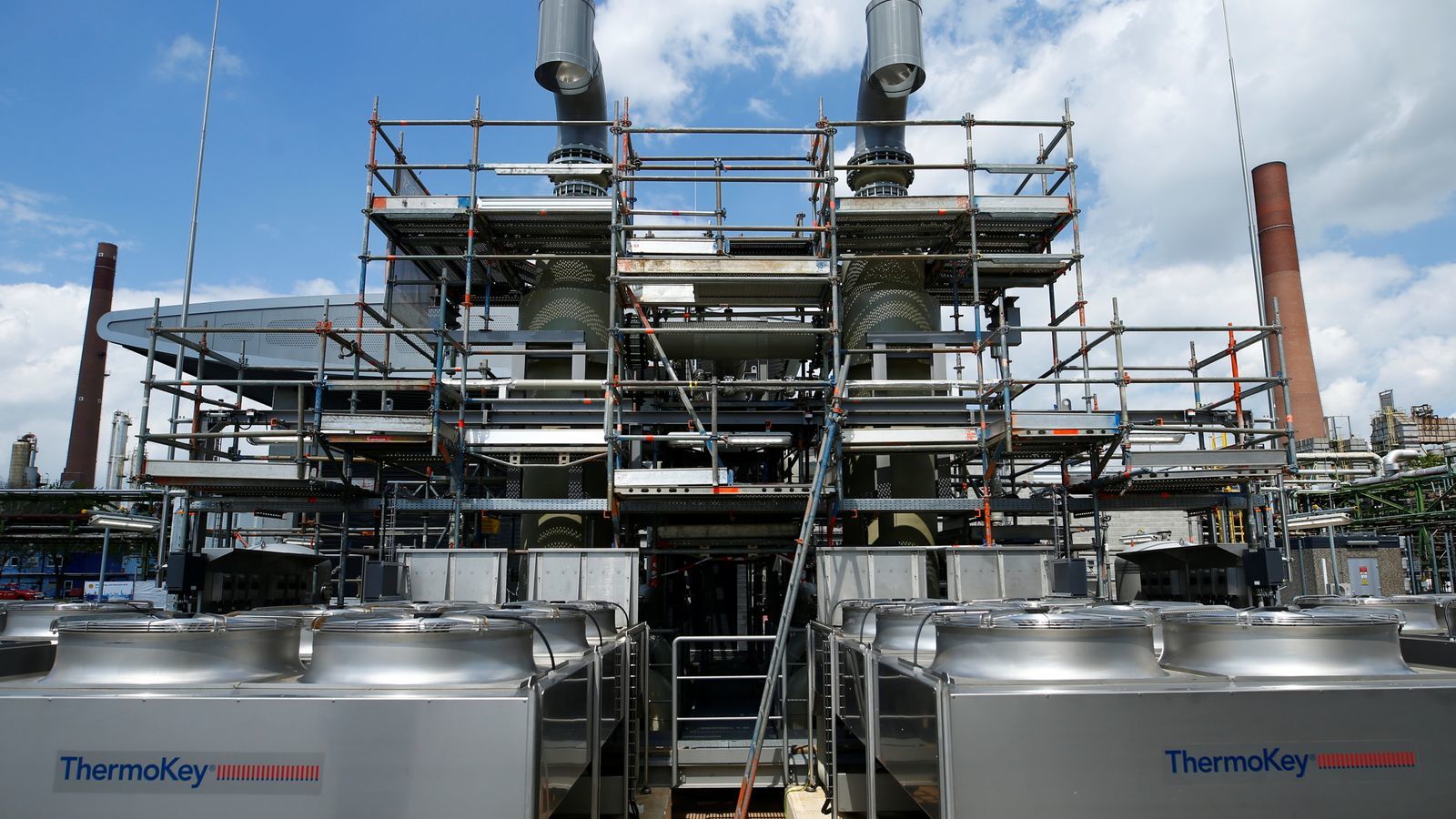 Shell's hydrogen electroysis plant in Rhineland
Shell's hydrogen electroysis plant in Rhineland
Now, there is nothing especially new about electrolysis. We have been using it to create important chemicals in this country and elsewhere besides for more than a century. Indeed there is nothing new about the idea of using hydrogen as the fuel of the future.
People have been driving prototype hydrogen cars for decades; they have been talking about this fuel changing the world for even longer. But it hasn't happened yet. Why? Well, this brings us to the second thing you need to know about hydrogen: it is really quite expensive to make - at least in its green form.
 Honda's hydrogen fuel-cell concept car in 2004
Honda's hydrogen fuel-cell concept car in 2004
This comes back to thermodynamics. Hydrogen gas does not exist in a natural form. Unlike natural gas or oil, this is not a fuel that nature has provided us. The reason we have all those different colours of hydrogen is that we need to make it and there are all sorts of ways of doing that. But the laws of thermodynamics are such that in order to make hydrogen you need to put in more energy than you can get out by burning the gas.
And the amount of energy you need to put in goes up the greener the type of hydrogen. Consider: making a kilogram of grey hydrogen costs roughly $1, or did before gas prices spiked to extraordinary levels. Making a kilo of green hydrogen, on the other hand, costs roughly $5.
This is worth pondering for a moment. Many of its boosters suggest hydrogen is the obvious solution for space heating. Most of the UK's homes currently have gas boilers.
Tearing out entire radiator systems and replacing them with air source heat pumps, powered by electricity, will involve significant costs for home renovation; some homes will need to be better insulated. It seems intuitively smart to retain your existing radiators and switch them over to hydrogen, right?
Except that a) Hydrogen is expensive: many multiples more expensive than natural gas. And b) because it is such a small molecule, it is far more prone to leaks than methane, meaning houses are significantly more vulnerable to explosions (hydrogen is also extremely combustible).
The country's gas infrastructure would have to be renewed - an incredibly expensive exercise - and this is all assuming people will want to pay the running cost of the hydrogen itself.
You see the issue here. In theory, there are lots of use cases for hydrogen but in practice, there are many areas where it's not obvious hydrogen is the answer. Heating is one of those areas: heat pumps are getting better by the year, and the momentum seems to be shifting towards them.
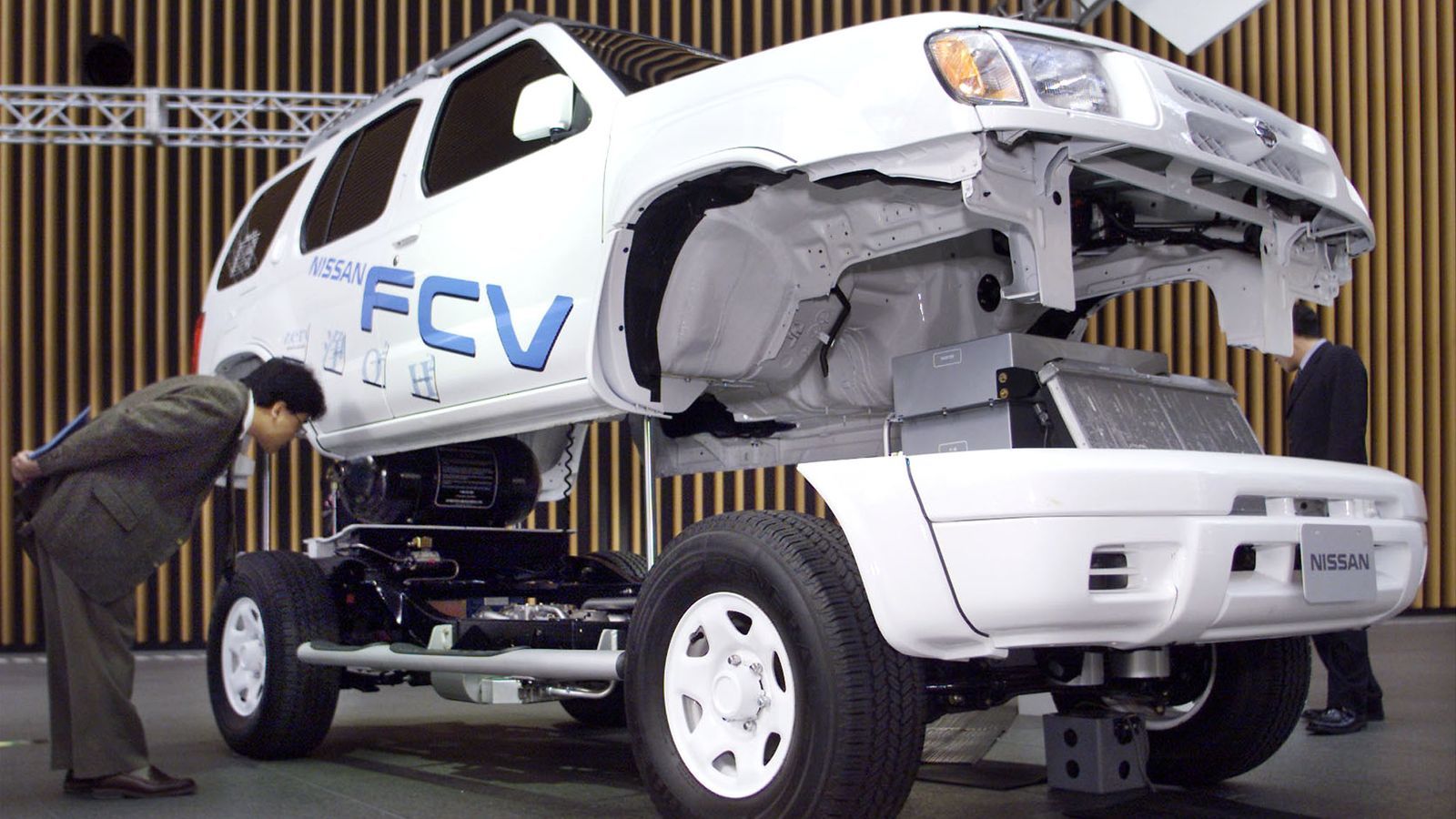 Nissan's 2002 prototype hydrogen car was expected to go into production in 2005
Nissan's 2002 prototype hydrogen car was expected to go into production in 2005
Something similar has already happened with cars. Back in the 1970s and 80s, many saw hydrogen as the answer for greening automobiles. Jack Nicholson wowed onlookers in the 1970s with a car fuelled by what we would today call "green hydrogen" (see, I told you none of this is very new).
But in the intervening period battery technology has improved so dramatically that most experts now agree that batteries have won that race.
Just because hydrogen can be used, should it be used?
The brings us to the third thing you need to know about hydrogen. There is an awful lot of hype about this gas, but while it could be used in all sorts of applications, it's not altogether clear it should be used in all those applications.
Hydrogen cars work great, but they are more expensive than their battery electric counterparts and have roughly similar range. It is, of course, much quicker to refuel a hydrogen car than to charge a battery, but then that assumes you can find a hydrogen fuelling station.
There are not many - far, far fewer than battery charging points (let alone simple three-pin plugs).
According to Meredith Annex, head of heating and hydrogen at BloombergNEF - which specialises in energy research - there are some obvious places where hydrogen will be all-important, starting with those areas where it's already used - for instance, in making fertilisers and as a chemical feedstock.
It will almost certainly play a role in making green steel, where it could be even cheaper than some of today's blast furnaces.
"And then you start looking at things like shipping fuel, where it looks likely that ammonia and methanol, which are both produced from hydrogen, are both looking like really good solutions," she says.
"And then you come to the areas where the jury is still out. Those are things like power generation, aviation fuel, where there are a lot of competing technologies."
And, it turns out, that jury-still-out section also includes trains, which brings us back to that Alstom locomotive in Berlin. Why use a hydrogen train instead of, say, a battery train? The short answer is that batteries are very heavy and bulky.
If you wanted a battery-powered train to cover 1,000 kilometres, as this train did recently, you would need so many batteries stacked up inside the train that there wouldn't be enough room for any passengers.
 Ed Conway on a hydrogen train in Germany
Ed Conway on a hydrogen train in Germany
So battery trains might make sense for rural lines of 100 kilometres or so, but for longer journeys there's a stronger case for hydrogen.
But the problem is that all of this remains somewhat fantastical until you have the necessary infrastructure: the pipes and terminals to refill those hydrogen tanks, not to mention the facilities themselves which can produce the hydrogen.
Germany is one of the most proactive countries in Europe on this front. These hydrogen trains are already running in the north of the country (albeit powered by grey hydrogen rather than the green stuff).
The UK, on the other hand, has no hydrogen trains or indeed the facilities on which to run them - whatever the colour of the hydrogen.
Hydrogen needs big investment - and the UK's strategy is uncertain
That brings us to the fourth thing you need to know about hydrogen: it won't happen without significant government intervention.
That intervention might mean setting a price for carbon, it might mean providing the infrastructure - the national grid for hydrogen (a non-trivial exercise given that you can't just run it in most of the existing gas pipelines). It means being clearer about whether you want homes to be heated with hydrogen or by heat pumps.
Yet so far no one is entirely sure where the UK government (this one or for that matter the last two of them) stands on hydrogen. There have been documents about a hydrogen strategy but most of them have looked more like thought exercises than clear signals of a direction of travel.
Little money has been set aside for the sector and the constant chaos in Westminster in recent years has only compounded the uncertainty.
Read one of those documents and you will see that the UK is poised to be a "world leader in low carbon hydrogen production and use".
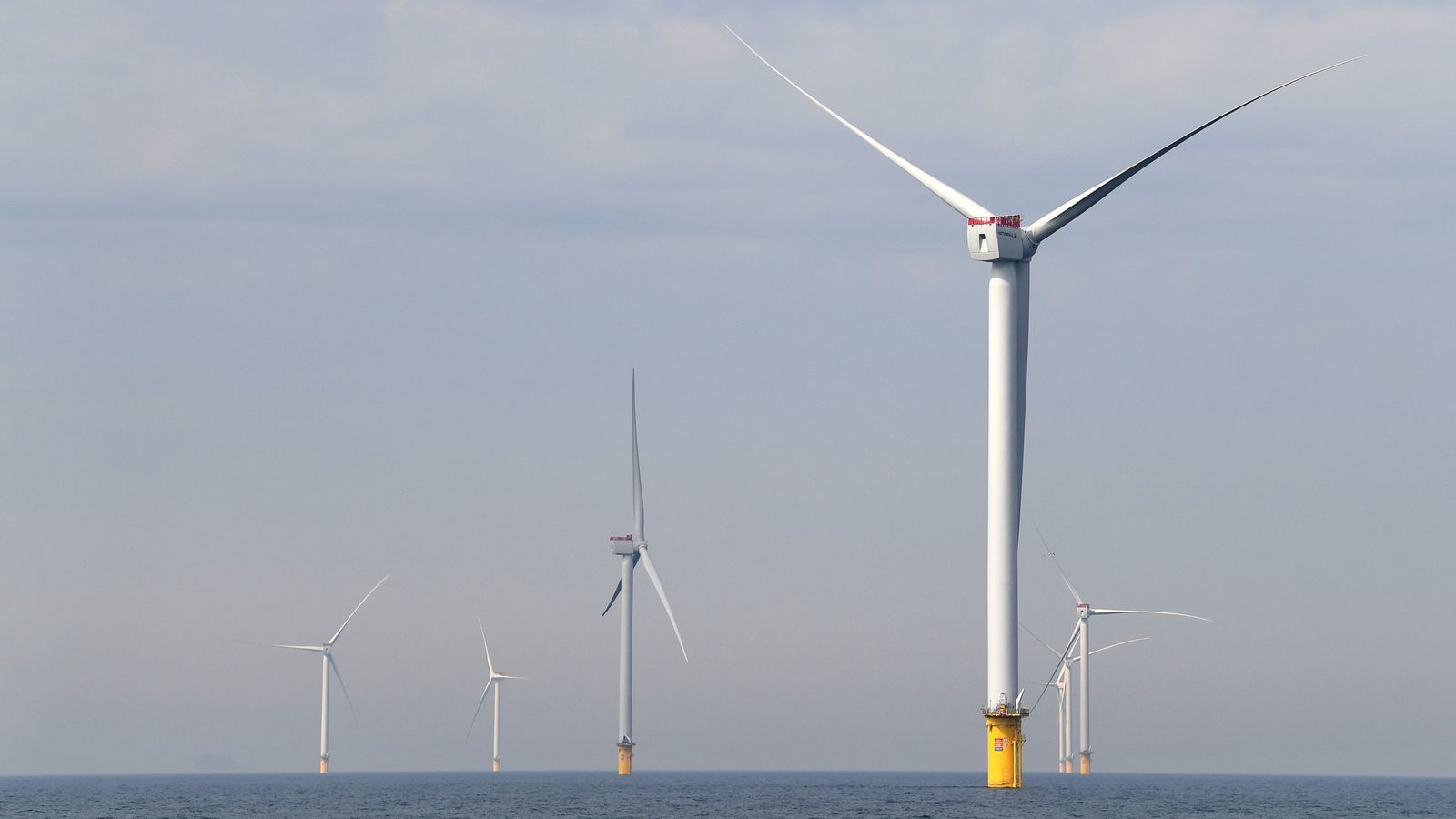
And there are lots of reasons to be optimistic about the UK. We have plentiful renewable power capacity coming on stream in the North Sea. We have decades of expertise in working with fuels and engineering the projects necessary to make hydrogen.
Yet if anything, the UK is a laggard in this race rather than a leader.
It also seems to have chosen the wrong horse in the race, putting much of its investment towards "blue hydrogen" - the kind you get from natural gas, squirrelling away the excess carbon - instead of green hydrogen.
That seemed like a prudent move when blue hydrogen was considerably cheaper than green but today, with gas prices so high, green hydrogen looks cost competitive with blue - a stunning change.
How will the UK adapt to this changing landscape? The short answer is no one has a clue; there have been so many changes in strategy, not to mention personnel in government, that it's no longer especially clear.
That's causing frustration among businesses which are vying to be part of the hydrogen economy. Inovyn, a part of Ineos which produces chemicals from its Runcorn base, has long used electrolysis to produce chlorine and hydrogen.
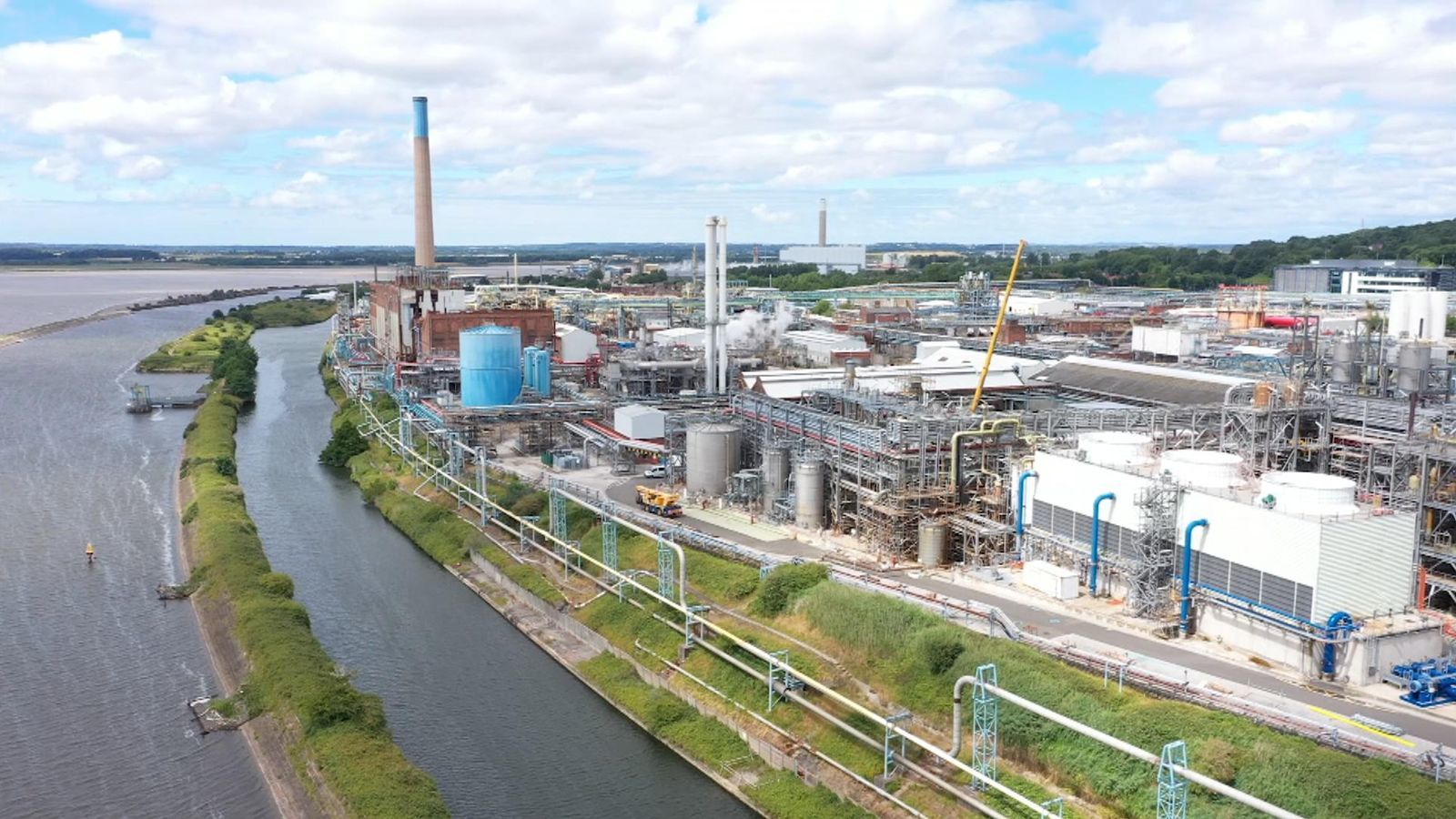 Inovyn's Electrolysis plant in the North West
Inovyn's Electrolysis plant in the North West
Its cells are currently plugged into the national grid, but were they powered by wind or solar, the hydrogen produced there would be green hydrogen. The company has expertise in making those cells and could be producing them for markets around the world - but the lack of a market in the UK represents a challenge.
ITM Power, a company based in Sheffield, is among the world leaders in a slightly different type of electrolysis cell (proton-exchange membranes rather than the alkaline cells Inovyn uses at Runcorn).
They already sell their units all over Europe, including at a Shell project in Cologne which promises to be the biggest green hydrogen site on the continent.
That these cells are wending their way across the Channel is not without significance.
China is bossing the race
The reality is that Britain is already a laggard in the race to create a European battery industry. There is a risk it ends up missing out on the race to create a hydrogen industry too.
In any case, the global race is already being bossed by China, which is dominant in almost every node of the hydrogen supply chain - much as it is for solar power and is shaping up to be for batteries. Britain, with its equivocal attitude towards industrial strategy, is currently an also-ran.
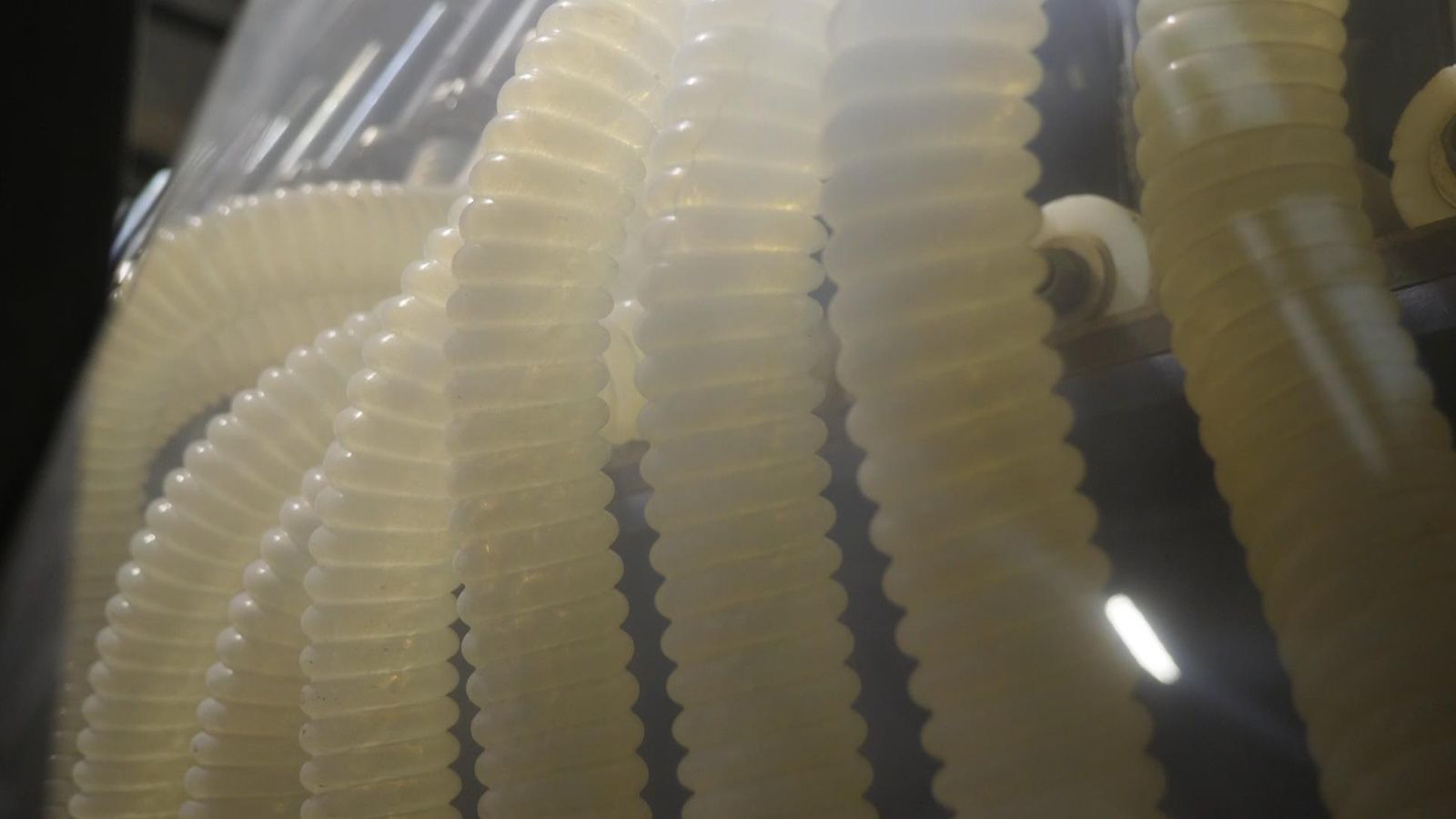 The electrolysis process happening here could revolutionise the energy industry - if it's applied properly
The electrolysis process happening here could revolutionise the energy industry - if it's applied properly
Given there are still so many question marks about the use cases of hydrogen, you are perhaps asking yourself: who cares? Is there really so much to be gained from investing in something which could end up being another bubble?
The short answer is that while there is certainly a lot of froth in the hydrogen sector, there is also one, big compelling reason why this time might be different for H2.
If we are going to eliminate carbon emissions altogether, that means eliminating or seriously curtailing all sources of pollution. So we will still need a way of making fertiliser which doesn't involve burning natural gas. That means hydrogen.
If we are going to make steel without burning coal, that will almost certainly mean using hydrogen instead. If we are going to make certain critical petrochemicals - the kind of things without which we are all in big trouble - we need hydrogen.
But, most of all, if we are going to have green power, then we will need lots and lots of hydrogen.
Hydrogen's killer app
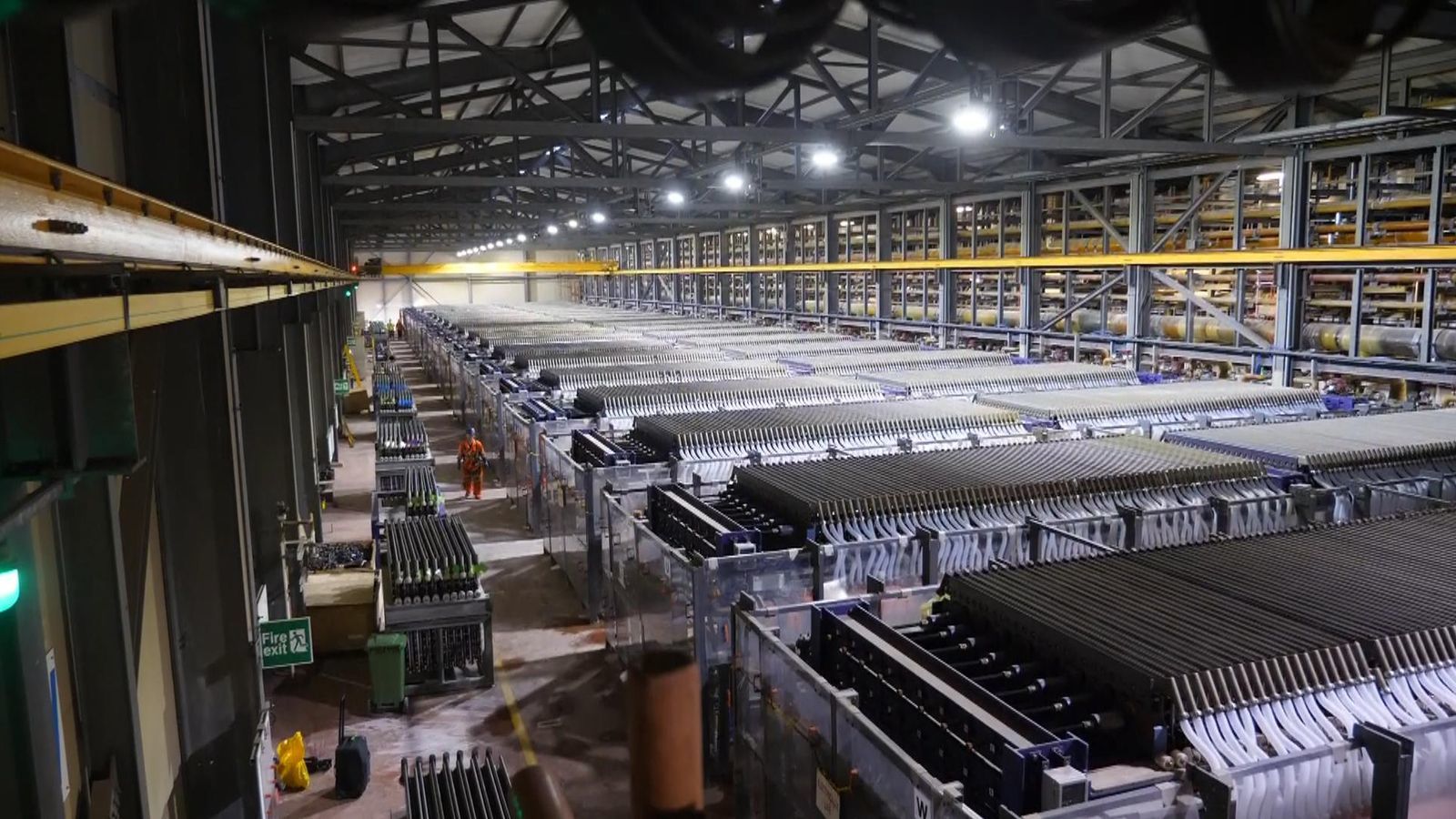 Inside Inovyn's electrolysis plant
Inside Inovyn's electrolysis plant
And this, ultimately, is the killer app for this fuel. Renewable energy is inherently intermittent. The sun only shines for so many hours a day; the wind does not blow every day.
So we need some sort of backup to store power for those times when it's not being generated by renewables. At the moment that backup is provided by natural gas and (to a lesser extent) by nuclear. We have a few pump storage reservoirs which can store some power, but only so much.
And while batteries can store certain amounts of power, you would need staggering numbers of them to provide the terawatts of power storage we would need to keep the grid replenished for hours or for that matter days.
So this is where hydrogen comes in. When the wind is blowing hard, we send that power to electrolysis cells where it creates lots and lots of hydrogen, which then acts as a mammoth national battery: when we need backup power we burn it in power stations or run it through fuel cells.
Squint a little bit and you can envisage a future where, with enough wind turbines and enough green hydrogen facilities, Britain (and for that matter the world) could have a truly green electricity system.
Yet getting there will take an awful lot of investment. It will take vision and commitment.
Neither of these things are in limitless supply in Whitehall right now. Which is why you have to travel much further afield to find exciting new hydrogen projects these days.
Comments












